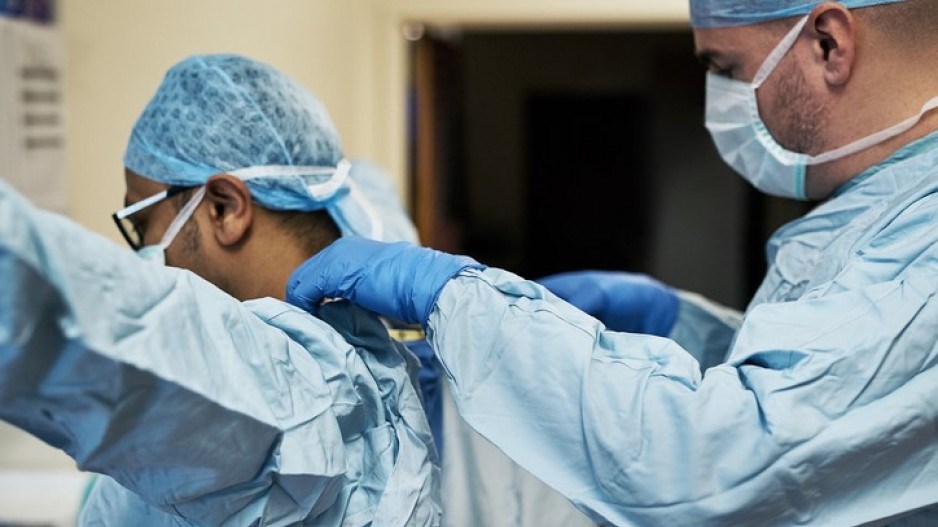The Vancouver-based Digital Technology Supercluster has unveiled the latest projects it’s funding in the wake of COVID-19.
Eight new projects will be tapping into $60 million in funding dedicated to addressing the pandemic following a March mandate from the federal government.
Projects announced Thursday (June 4) range from using artificial intelligence to help detect the coronavirus through surveillance cameras to offering virtual addiction treatments for healthcare workers.
The supercluster has been allocated a total budget of $153 million from the federal government to stoke private industry and post-secondary collaborations on digital products that can be commercialized.
Partner organizations must also contribute to the cost of developing such products.
The Vancouver-based supercluster is earmarking $60 million of its $153 million budget to tackling COVID-19.
Following Ottawa’s mandate that the nation’s five superclusters reach out to their 1,800 members to come up with ways to address the pandemic, the Digital Technology Supercluster has given the green light to 22 projects out of 500-plus pitches.
The eight projects announced Thursday are as follows:
· Confidential Virtual Addiction Treatment for Healthcare Workers (led by Alavida): “This project will provide healthcare workers with access to confidential virtual care and evidence-based treatment options for substance use.”
· Digital Mental Health Tools for Healthcare Workers Providing COVID-19 Care (led by Starling Minds): “This project will work to build a suite of readily accessible and interactive digital therapy tools to help healthcare organizations deliver personalized mental health care to workers.”
· Digital Telework for Remote Physical Work (led by Sanctuary AI): “This project aims to expand beyond the existing use of video and audio technologies for the virtual work environment.”
· Early Detection of COVID-19 through Artificial Intelligence (led by Patriot One): “This project applies existing security cameras and computer vision technology to develop a passive screening system to identify people with elevated temperatures who are at risk of having COVID- 19, protecting the health and safety of Canadians.”
· Looking Glass: Protecting Canadians in a Return to Community (led by Kings Distributed Systems): “This project will provide possible benefits and risks based on science-driven modelling to better inform public policy and practice, for government and industry, as physical distancing measures, reopening of schools and businesses, and widespread testing are considered, and the country looks towards a return to work and community.”
· Making Virtual Care Happen: COVID-19 & the Health Connect App (led by Thrive Health, Providence Health Care and Foundry): “The Health Connect App will expand access to mental health services, substance use and physical health care, walk-in counselling and peer support using virtual tools and intuitive technology.”
· Stronger Together: Social Infrastructure for Community Health (led by Curatio Networks): “This project combines remote patient monitoring with a private social network platform to deliver ongoing care for discharged patients who need it.”
· Risk Management Frameworks for Workplace Safety (led by ecoMine): “A Vancouver-based biochemistry company will assess the feasibility of its innovative, low-cost, on-the-spot screening technology for the detection of COVID-19.”




